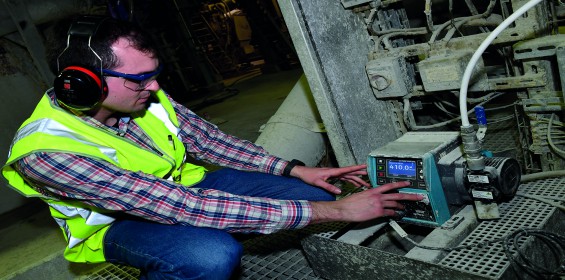For modern and efficient paper production, dosing of various chemicals as paper additives or processing aids is unavoidable. On both of Moritz J Weig ‘s carton machines, many pumping tasks take place, for which the company relies on different pump types. However, for challenging dosing tasks that demand precision and reliability, Weig is increasingly shifting its focus to Qdos peristaltic pumps from WMFTG.
Moritz J Weig is a respected supplier of folding boxboard and plasterboard made from recovered paper. At the company's head office in Mayen, Germany, about 600 employees work on two carton machines with a total capacity of 630,000 tonnes per year.
The first field test for a Qdos pump at Weig was in the wet section on ‘KM3’, a machine for folding boxboard. During sheet formation for the surface layer, a chemical antifoam agent is dosed into the running water. Until recently, solenoid diaphragm pumps were used, but were unable to guarantee the necessary long-term accuracy.
“The diaphragm pumps performed dosing tasks with a strongly pulsating flow,” reports Peter Molitor who, as Project Engineer, is responsible for material and water treatment on both carton machines in Weig. “We use a flow meter to control the dosage. However, due to high pulsation, recording the dosage was difficult and unreliable.”
When the dosing is not exact, there can be a negative impact on product quality, sometimes even leading to reject stock. High maintenance and repair requirements of the diaphragm pumps proved to be troublesome in the production process and their design means they need a ball valve on both the inlet and discharge side.
“These valves tended to clog, while further problems were caused by torn membranes,” says Molitor. “Replacing a membrane is very laborious and therefore expensive, so in many cases we just replaced the entire pump to minimise interruption to production.”
The company began searching for alternatives and found what it was looking for with the Qdos dosing pump from WMFTG.
Qdos pumps do not have any membranes, valves or seals. Moreover, they use a particularly design principle: the only wear part is the patented ReNu pumphead, which can be rapidly be replaced without tools. As the pumphead is completely sealed, leakage of fluid is prevented so the operator does not come into contact with chemicals.
Weig opted for the Qdos 60 model, which doses at up to 1,000 ml/min with an accuracy of ±1%. Trials with the Qdos peristaltic pump were very successful from the outset, reports Molitor: “Thanks to lower pulsation, recording the dosage in the flow meter is now trouble-free. Strictly speaking, the pump is so accurate that in theory we will be able to dispense with the use of an additional flow meter in future.”
And with regard to maintenance, Molitor commented: “We have been dosing antifoam for about a year now. Despite 24/7 operation, it is still on its first pumphead.”
Six more pumps
After this experience, it made sense to use Qdos in other applications on the KM3 machine. Since autumn 2017, a total of six have been dosing retention agent.
“The use of Qdos pumps has prevented precious fibres, fines and fillers being flushed away”, explains Molitor. “The pumps each supply around 33 to 38 litres/hour of the slightly viscous retention agent to different dosing points in the dilution water line, with a counter-pressure of about 5 bar.”
In terms of investment costs, the Qdos pumps are claimed to be superior to the progressive cavity (PC) pumps used previously for this task, which failed repeatedly. A major problem was insufficient dry-running protection; even after a short period of time, dry running would damage the pump.
Molitor highlighted: “The PC pumps stators and rotors barely lasted two years on average before they needed to be replaced…in addition, replacement was very time-consuming and expensive.”
Qdos pumps are self-priming and dry-running so in the event of a flow interruption, pumping commences without manual filling.
On average, Qdos ReNu pumpheads last around eight months in this demanding application. Although this is less than the previous PC pumps, the change has led to a significant increase in operational time and a reduction in maintenance.
“In contrast with the four hours required to replace a stator or rotor on the PC pumps, the Qdos ReNu pumphead can be replaced in a matter of minutes – and at a fraction of the replacement parts costs”, states Molitor. “What’s more, since we changed to Qdos pumps, no impairment of product quality has occurred due to failed dosing pumps.”
Encouraged by the successful use of Qdos on the KM3, Weig is currently trialling further possible applications on both carton machines.

